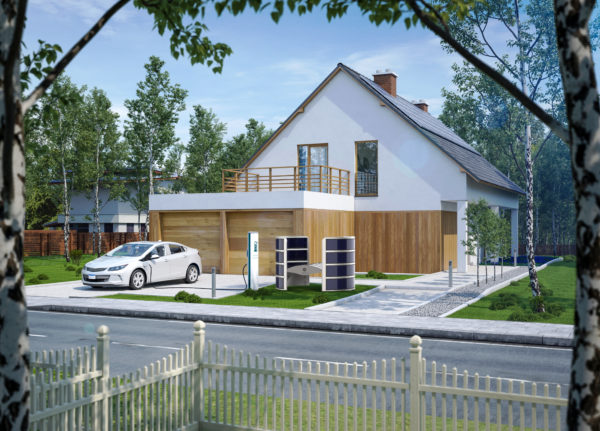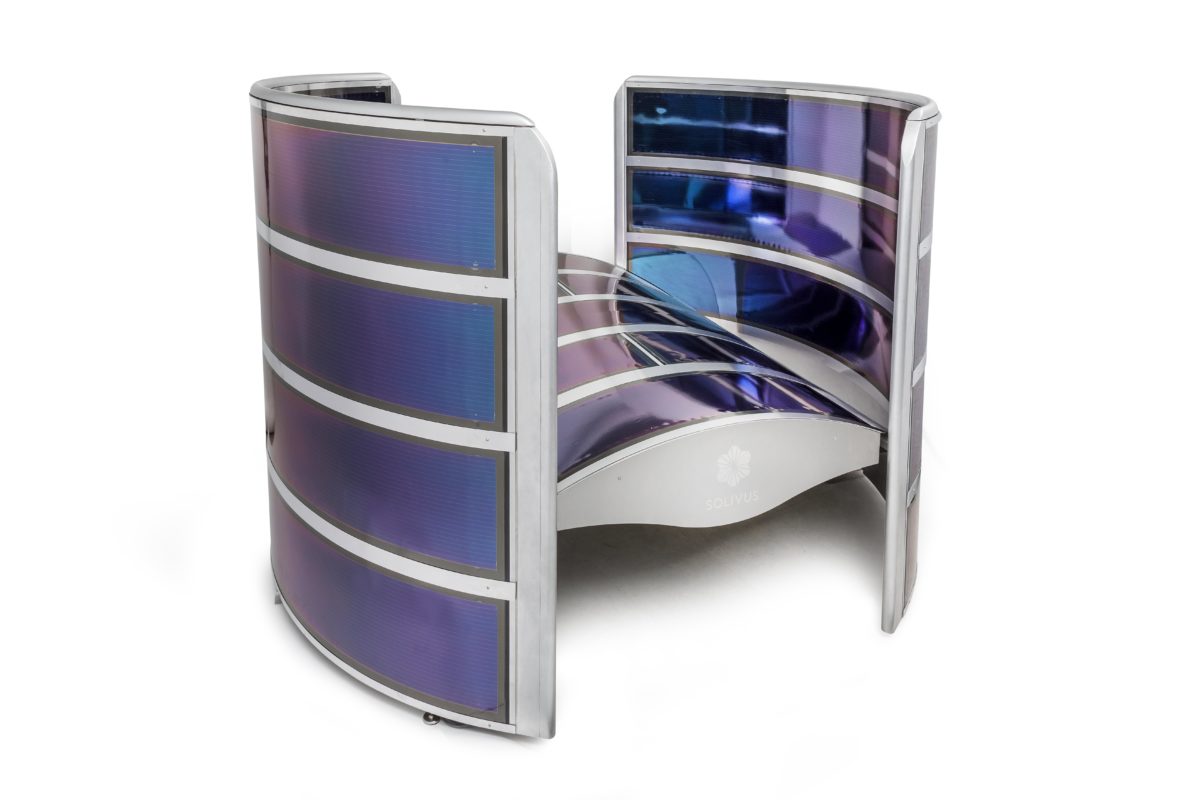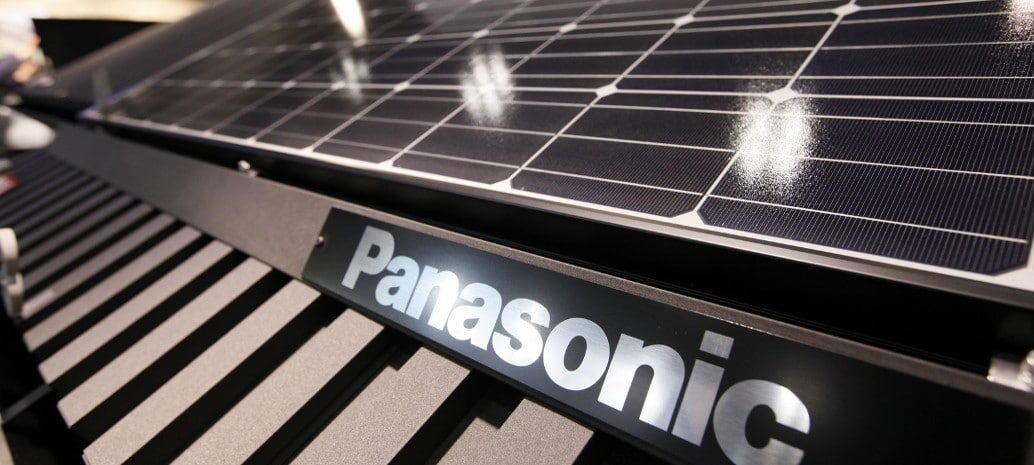As solar moves increasingly into the built environment to meet regulations requiring on-site generation, addressing the aesthetic concerns of architects and property owners is becoming an important challenge.
A product under development in the U.K. is taking a novel approach as a freestanding PV installation designed for gardens and driveways. Currently at the prototype stage, the module has been developed by the Cambridge Design Partnership for U.K. solar company Solivus and incorporates organic PV technology from German manufacturer Heliatek.
“Solivus had the idea for a freestanding solar panel with high architectural values,” said James Baker, partner at Cambridge Design. “Its CEO, Jo Parker-Swift, wanted to create a product so attractive that people would be happy to have one in their garden.”

Image: Solivus
Cambridge Design developed the prototype for Solivus and said the plan now is to move toward production. “Ultimately, the new design will help power homes and electric cars and is set to be brought to the market,” said Ben Crundwell, senior electronics engineer at Cambridge Design. “The next step will be to refine it for cost-effective, volume manufacture. We have considerable experience in this process and can provide all the development capabilities needed to move smoothly to production.”
Information about the likely cost of the product or its power output has not been released. Recent innovations in building-integrated PV solutions have typically focused on facades and solar glass as well as varying the colors of modules to give architects more choice.
Austrian company Energetica took a similar approach to Solivus with its freestanding Smartflower solution and has had some success with it.
Heliatek has already incorporated its thin-film PV solutions into demonstration projects in Germany and France, and said in May it was optimizing its organic PV film before moving to large scale production.
This content is protected by copyright and may not be reused. If you want to cooperate with us and would like to reuse some of our content, please contact: editors@pv-magazine.com.




By submitting this form you agree to pv magazine using your data for the purposes of publishing your comment.
Your personal data will only be disclosed or otherwise transmitted to third parties for the purposes of spam filtering or if this is necessary for technical maintenance of the website. Any other transfer to third parties will not take place unless this is justified on the basis of applicable data protection regulations or if pv magazine is legally obliged to do so.
You may revoke this consent at any time with effect for the future, in which case your personal data will be deleted immediately. Otherwise, your data will be deleted if pv magazine has processed your request or the purpose of data storage is fulfilled.
Further information on data privacy can be found in our Data Protection Policy.